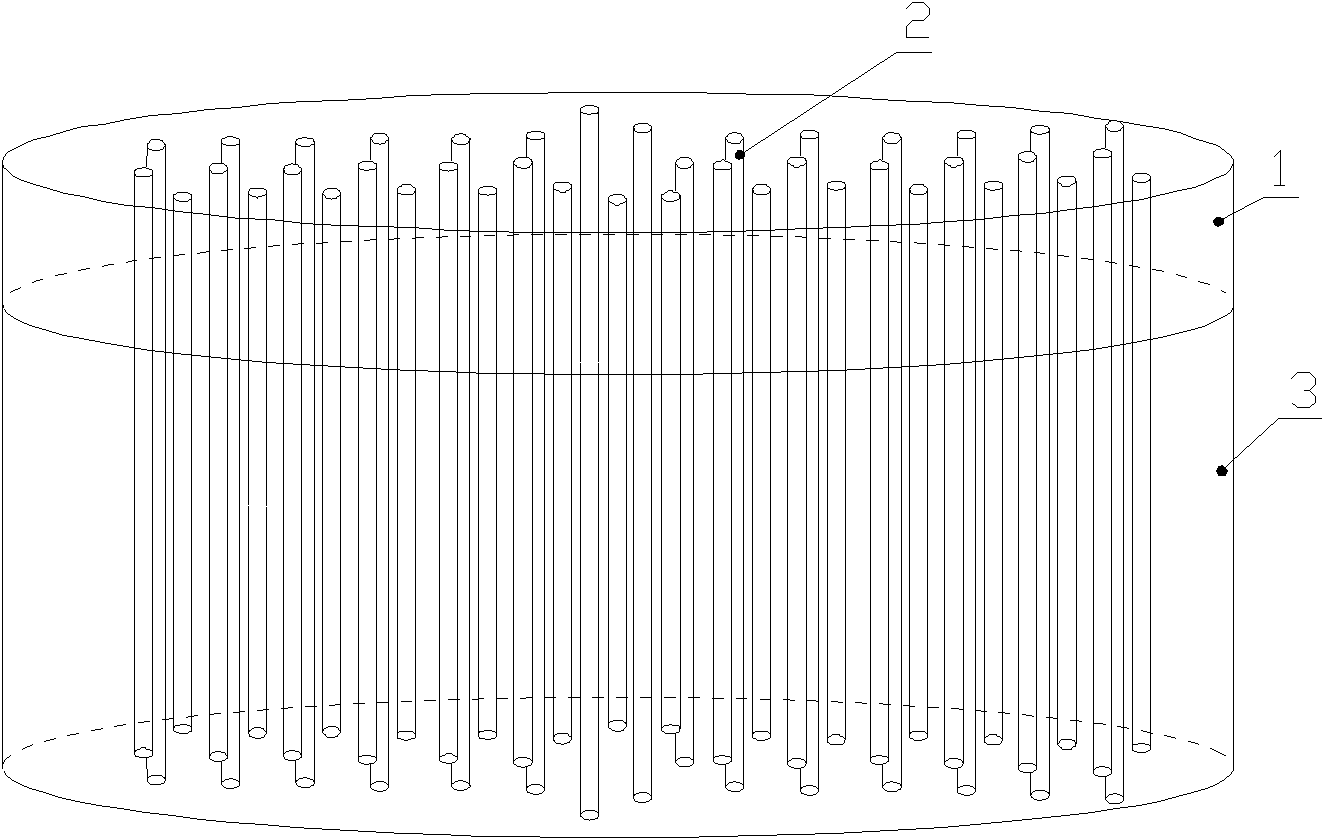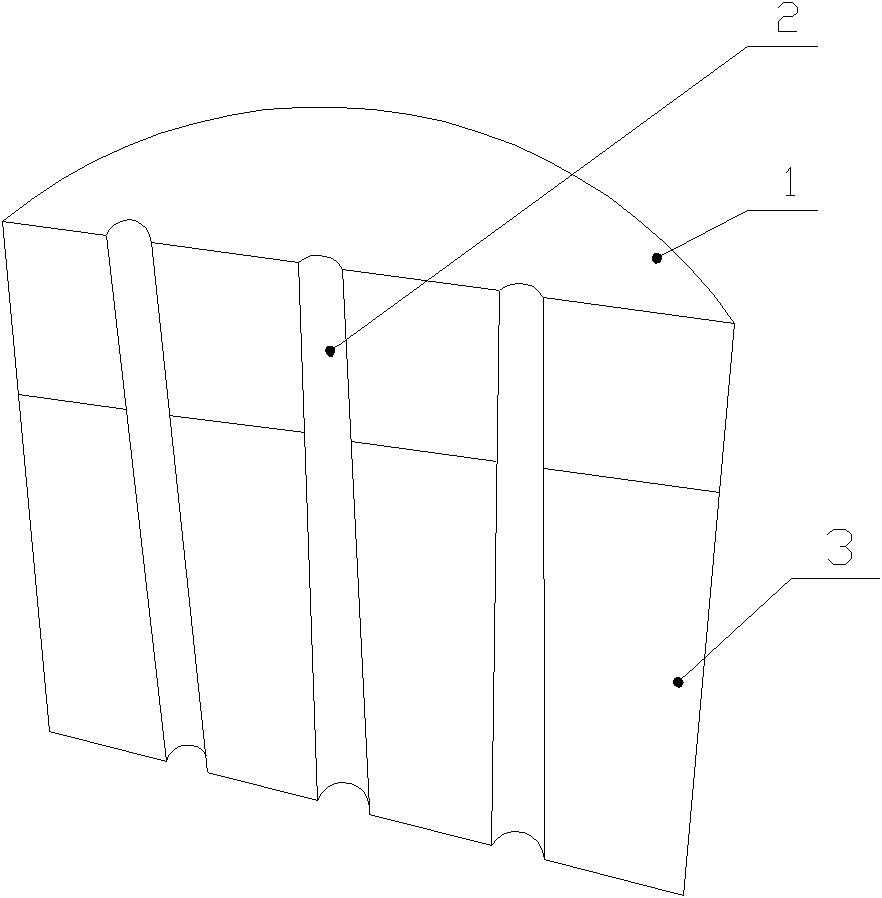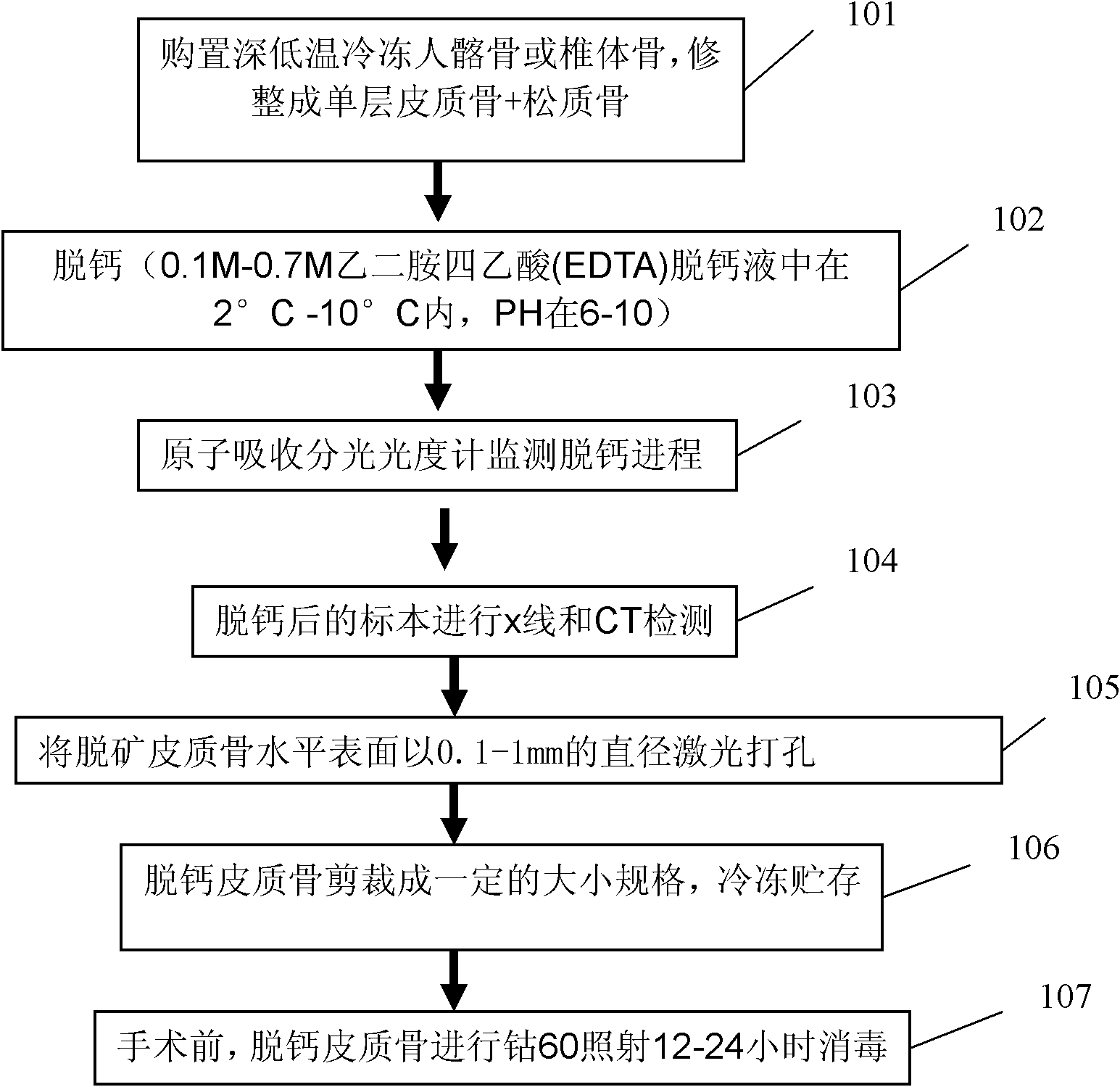Articular cartilage restoration and regeneration stent and preparation method thereof
A technology for repairing and regenerating articular cartilage, applied in the field of medical materials, it can solve the problems of poor biocompatibility of artificial scaffold materials, affecting cell growth, poor mechanical mechanics, etc., achieving sufficient and safe donor sources, satisfying clinical application, and easy clinical practice. popular effect
- Summary
- Abstract
- Description
- Claims
- Application Information
AI Technical Summary
Problems solved by technology
Method used
Image
Examples
Embodiment 1
[0043] see image 3 , a method for preparing a scaffold for articular cartilage repair and regeneration, comprising the following steps:
[0044]Step 101: Select the bone with cancellous bone under the cortical bone, trim the thickness of the cortical bone to 0.5-3mm, decalcify the solution as 0.1M-0.7M EDTA, pH 6-10, temperature: 2-10 ℃;
[0045] Step 102: Soak the bones in a decalcification solution for decalcification;
[0046] Step 103: monitoring the decalcification process with an atomic absorption spectrophotometer;
[0047] Step 104: Carry out x-ray and CT detection on the decalcified specimen to prove that the bone is completely decalcified to obtain decalcified cancellous-cortical bone;
[0048] Step 105: Laser drilling holes with a diameter of 0.1-1 mm on the horizontal surface of the decalcified cortical bone;
[0049] Step 106: Detect the nano-elastic modulus of each part of the decalcified cancellous-cortical bone scaffold with a nano-indentation biomechanica...
Embodiment 2
[0055] Preparation method of scaffold for articular cartilage repair and regeneration:
[0056] The preparation flow chart is as image 3 As shown, purchase cryopreserved human ilium or vertebral bone, soak in 0.1M-1 MEDTA decalcification solution, the temperature of the decalcification solution is within 6°C, and the pH is 8, and the cortical bone is removed by chelation. Calcium, decalcification solution was changed daily. Prepare EDTA decalcification solution with deionized water and store it in a plastic container. Use an atomic absorption spectrophotometer to detect the calcium ion concentration in the decalcification solution that is changed every day to monitor the decalcification process. When the Ca chelate concentration in the decalcification solution is figure 2 As shown, the horizontal surface of the decalcified cortical bone is drilled vertically with a diameter of 0.5mm, and the drilling is done by laser drilling. Therefore, the hole diameter and hole distance...
PUM
| Property | Measurement | Unit |
|---|---|---|
| diameter | aaaaa | aaaaa |
| distance | aaaaa | aaaaa |
| porosity | aaaaa | aaaaa |
Abstract
Description
Claims
Application Information
 Login to View More
Login to View More - R&D
- Intellectual Property
- Life Sciences
- Materials
- Tech Scout
- Unparalleled Data Quality
- Higher Quality Content
- 60% Fewer Hallucinations
Browse by: Latest US Patents, China's latest patents, Technical Efficacy Thesaurus, Application Domain, Technology Topic, Popular Technical Reports.
© 2025 PatSnap. All rights reserved.Legal|Privacy policy|Modern Slavery Act Transparency Statement|Sitemap|About US| Contact US: help@patsnap.com



